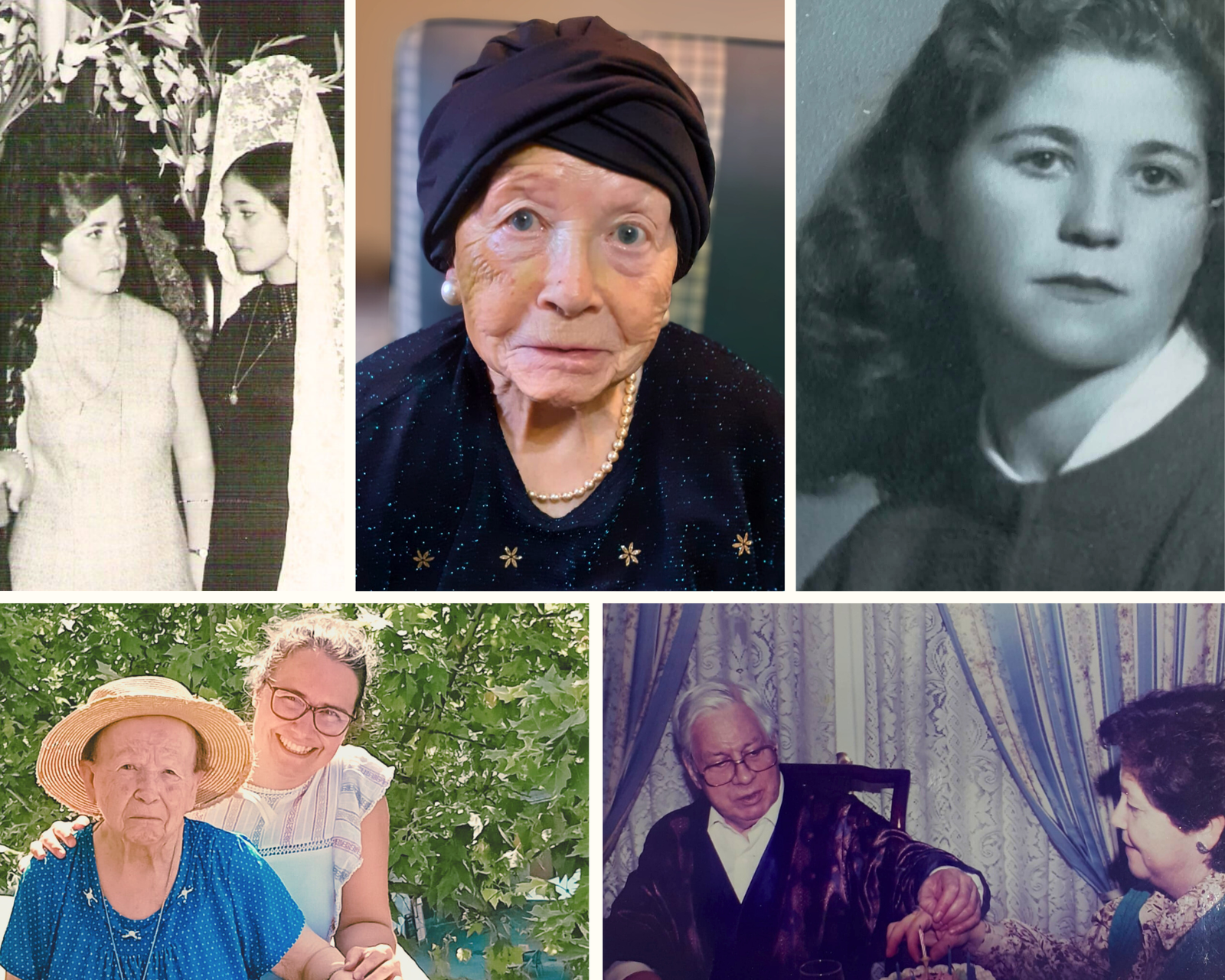
by F. Luis Casasús, Geneal Superior of the men’s branch of the Idente missionaries.
New York/Paris, November 29, 2020.| First Sunday of Advent
Book of Isaiah 63: 16b-17.19b.64,2b-7; 1 Corinthians 1: 3-9; Saint Mark 13: 33-37.
The history of the attention debate takes us from Antiquity to neuroscience. A woman as intelligent and sensitive as Simone Weil (1909-1943) said: Attention is the rarest and purest form of generosity. And she added: The quality of the attention counts for much in the quality of the prayer. Warmth of heart cannot make up for it.
Although each of us defines attention differently, we must agree that it is fundamental to learning, human relationships and our relationship with God. No wonder the Shema, the famous Jewish prayer begins with a call for attention: Hear, O Israel! Adonai is our God!
In particular, today’s Gospel has as its key message the words of Jesus: I say to all: stay awake! If Jesus were telling us here to be attentive to temptation or when we are in our time of silent prayer, or during a spiritual lesson, it would not be anything too new.
But it is precisely now, in Advent, that the liturgy presents us with this message of Christ because there is indeed a matter to which we must be constantly attentive. It is about nothing less than our true condition, our situation in this world. I am not referring to anything technically philosophical about our essence or nature, but to an important fact that dominates and permeates our existence. This fact is that we need a Savior. That is an important point of Advent.
Many of you may remember the novel Robinson Crusoe (Daniel Defoe, 1719), which tells the story of a shipwrecked man who lived 28 years on an island. There he saved the life of the man who would later become his servant and convert him to Christianity. He rescued several prisoners from a tribe of cannibals, saved a captain from being executed by his mutinous crew, and was able to do many things despite the few means he had. But he never lost sight of the fact that he needed to be rescued, to be saved, as he was. Many of us, in our world, busy all day with professional or religious activities, do not seem to be as aware as that famous novel character who, in spite of being capable of performing real feats, was waiting to be rescued one day from the island.
Being saved means that someone does something for me that I cannot do. That means being redeemed or saved. When we need to be saved, we really live with hope and vigilance. Especially for this reason, neither the world nor contemporary Christians understand the meaning of Advent very well. Our individualism, our independent lifestyle, and often our complacency, do not make it possible for us to feel in need of salvation. At the most, we recognize that we have to make an effort to make changes in our lives, sometimes to repent of some sin. But to be saved? That sounds too pessimistic, exaggerated, even seems a sign of weakness and lack of character.
But the reality is that sin has left us in such a situation that we need to be saved. This explains why the early Christians implored: Maranatha: Come, O Lord! (1 Cor 16:22). Come, Lord Jesus is the invocation, which concludes the book of Revelation (Rev 22:20).
This is not dramatic pessimism but pure realism. We can make personal and social progress in knowledge, organization, justice, and virtue, but, like Robinson Crusoe, we need to be saved. This is what the First Reading so dramatically expresses today: Behold, you are angry, and we are sinful. All of us have become like unclean men, all our good deeds are like polluted rags; we have all withered like leaves, and our guilt carries us away like the wind.
Perhaps because of the psychological process of projection, many religions, including the Old Testament, reflect an “angry” God, which is the result of our consciousness of sin, even if we do not recognize it, or do not know how to express it…or want to hide it.
Even our good actions are like dirty rags. That portrays perfectly our division, our dysfunction. It is like a person who has fallen into an addiction, which leads to his will be so weakened that he can hardly control his will. It doesn’t matter what kind of addiction it is, light or heavy, pornography, alcohol, games, some activity that we consider indispensable… In those cases, the problem is not the substance or the activity that enslaves me. The problem is my will. I need outside help, be it a doctor, my friends, my family, an expert.
This little fable will surely help us remember that truth:
A Chinese emperor known for his foul temper entered the bedroom of his soon-to-be-bride, who was one of the most beautiful women in all of China. She was being made to marry him against her will, as her parents were forcing her into it.
Little did the emperor know however, that she had also been taught by wise sages as a child. She sat expressionless, staring at the wall. “Hello, love,” he said to her, but she didn’t respond. “I said hello to you, and you will respond when I address you. Do you understand me?” he grunted. But still, she didn’t reply. Most people would have answered him by now, so despite himself, he grew curious and gruffly asked, “What is it you are thinking?”
Finally, she answered him. “Two things. One, that I do not wish to marry you because you are so callous and mean-spirited. And the other thing, is that I was wondering if you have it within your power to have a certain something changed.”
“What?!” the emperor exclaimed with outrage. ” How dare you question my authority! … But … I admit I’m curious. Since I have it within my power to snap my fingers and whatever I command within my kingdom will be obeyed, what is it you are wondering if I could change?” “Your attitude,” she replied. And with that, she got up and walked out of the room, leaving him in stunned silence.
Therefore, it is time to remember that Christ is authentically and completely human and has the capacity to come and save us. On the Cross and in every moment, as a human family and to each one as a person. Returning to the First Reading, we can understand this with this beautiful and accurate image: We are the clay and you the potter: we are all the work of your hands. St. Irenaeus said that God's provident direction of our lives is easy as long as the clay of our hearts remains supple and moist. Trouble comes only when we allow the clay to harden.
Even the term “redeemer” is very significant. It referred to the nearest relative, the one on whom hung the responsibility to redeem a family member who had lost his freedom, made a prisoner, or because, burdened by debts, he had to give himself a slave to his creditor. This was fulfilled in two ways: by collecting the amount required for the redemption or handing oneself up in place of that relative.
Jesus speaks today of not knowing when “the time” will come. The Greek word in the gospel for this time is kairos. But there are two words for time in the New Testament, one is that used today, kairos; the other word is chronos. There is a difference between the two. Chronos is the kind of time we usually mean. It is when airplanes take off or when the semester begins in school. We are very much preoccupied with this chronos time. It marks minutes, days, hours, weeks, months. Often times, we give our lives to it, and this chronos runs our lives…
The time word Jesus uses today is not chronos but kairos. Kairos time is a special time; it is charged with possibility; it is uncommon time, filled with the unexpected; kairos is a moment when the unexpected happens; something unplanned breaks into our routine. Kairos time is a time of opportunity; it is a gifted time.
The parable Jesus shares with us makes it clear that the apparent Jesus’ absence from us means responsibility and service on our part. Waiting for the great moment is not dull, inactive, passive. Rather, it is itself a kairos, an opportunity to live the gifts that knowing and believing in Jesus have brought us. This is Paul’s point to the Corinthian community in the Second Reading.
We all experience these moments of Jesus’ arrival in our hearts. His usual way of making himself present is through the Holy Spirit with a multitude of signs. These signs surely go unnoticed for the most part. This shower of messages is called Inspiration in our life.
We could say that Inspiration is the Holy Spirit’s way of telling us: Look carefully, that which is before you, that sad or happy event, this unexpected moment or this moment that seems normal and, above all, that human being that you have before you… it is first of all an opportunity, a sign that I give you, respecting your freedom, so that you will please do something in the name of Christ. To be alert and watchful means being persuaded that every moment is ripe with opportunity both to see God and to be His hands and feet.
So, for us, Christ’s disciples, attention is not simply the concentration of our mind and will, but the continuous formulation of this question: What does Providence want to tell me with this?
We can use an analogy from the world of arts. Take acting on stage for example. Being a skillful and creative actor is not just a matter of inspiration and originality, but paying careful attention to other actors, the developing story, the audience, the stage and set, and to oneself. As an actor, paying attention in all these different ways allows one to act in fitting ways that contribute artfully to the theatrical event. Attention makes artful acting possible.
Of course, in today’s parable, Jesus is not only referring to his return to an unspecified distant future, but his constant renewing presence in the world. Prayer, as a constant dialogue with the divine persons, is the key to keep oneself awake. The one who does not pray dozes off. He will eventually end up resigned and will adapt, like everyone else, to the dark of the night that envelops the world.
When prayer becomes just another task to be done, it quickly loses its appeal and is drained of its life-giving energy. Prayer is more like breathing. At times we may be especially conscious of it. It is necessary to pause from time to time to focus our full attention on our spiritual breath,
The fact that Christ refers in his parables to the night as the moment of the Lord’s arrival does not mean that God wants to surprise us, as if he were setting a trap for us. It is the way he represents our dormant state, with little capacity to look at reality, sometimes dazzled and other times absorbed by the things of the world…or of the religions.











